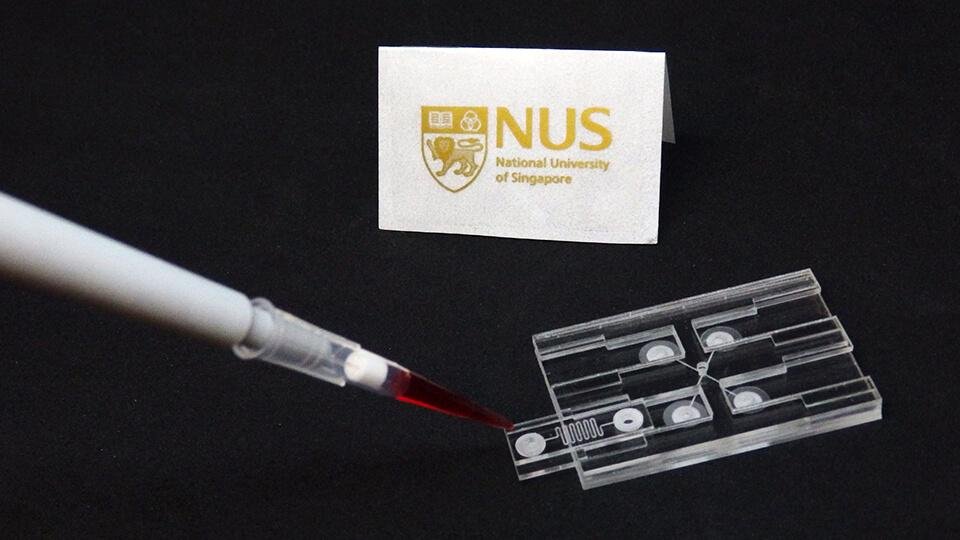
Photo credit: Duke-NUS Medical School
Scientists from the National University of Singapore (NUS) community are working on a vaccine trial and rapid detection test kits, as they join the global effort to combat the COVID-19 virus.
For the vaccine trial, the Duke-NUS Medical School (Duke-NUS) scientists are cooperating with the Coalition for Epidemic Preparedness Innovations (CEPI), a Norway-based public-private coalition that develops vaccines to stops epidemics.
The trial will involve giving the vaccine to healthy volunteers, who will be monitored for side effects. They will also be observed to see the effects that the vaccine has on their immune system and whether it grants them immunity against COVID-19.
“CEPI has developed several vaccine platforms that can be quickly used when a new virus emerges. This includes methods of vaccine production. As such, when a virus comes, trials are able to start more quickly,” said Professor Wang Linfa, Director of the Duke-NUS Emerging Infectious Diseases Programme.
“If any vaccine is ready for human trials, the doctor-scientist team across SingHealth and Duke-NUS is experienced in a similar type of trials. So we’re trying to convince CEPI to select Singapore as one of the trial sites.”
Prof Wang opined that for heavily affected areas like Wuhan, it may be necessary to vaccinate everybody. High-risk persons like healthcare workers and people who work in the airport will also benefit from a vaccine, he added.
Rapid detection kits
There is also ongoing work on rapid detection kits.
Time is of the essence in determining whether a suspect case actually has COVID-19. Initial screening and confirmation by genome sequencing can take 12 to 24 hours using conventional methods.
In that respect, homegrown biotech company Acumen Research Laboratories has developed a diagnostic test kit prototype that can detect the virus in just two hours. The company is led by its director and chief scientist Dr Ong Siew Hwa, an alumna of NUS Science.
Acumen has identified a set of genetic red flags that will distinguish the COVID-19 virus from others. When using the kit, similar to conventional methods, samples are collected from a patient’s lungs or cough mucus and processed via polymerase chain reaction (PCR). PCR is a method to amplify DNA for analysis and works based on temperature cycling — cycles of heating and cooling in order for multiple copies of the DNA to be created.
The rapid testing kit, together with programming the PCR machine to recognise the red flags, will allow detection of the virus in two hours as the need for additional genetic sequencing is reduced. The next step is to try out the test using actual patient samples.
EnVision is a versatile platform that can conduct specific and sensitive screening and detection for a range of diseases, from infectious diseases and high-prevalence infections to various types of cancers and genetic diseases. Tests can be done at the point-of-care, for instance in community clinics or hospital wards, so that disease monitoring or treatment can be administered in a timely manner to achieve better health outcomes.
Furthermore, results are easily visible — the assay turns from colourless to brown if a disease is present, and the intensity of the colour is proportional to the amount of the pathogen that is present.
Asst Prof Shao shared that the team hopes to finish the development and validation in the next couple of months, for enVision to detect the COVID-19 virus.
“Existing approaches rely primarily on PCR for detecting the virus. This process requires multiple preparation steps and temperature cycling,” she said.
“The enVision technology is designed through a completely different assay mechanism. It obviates many of these preparation steps, and operates entirely at room temperature, to enable rapid and sensitive detection.”




